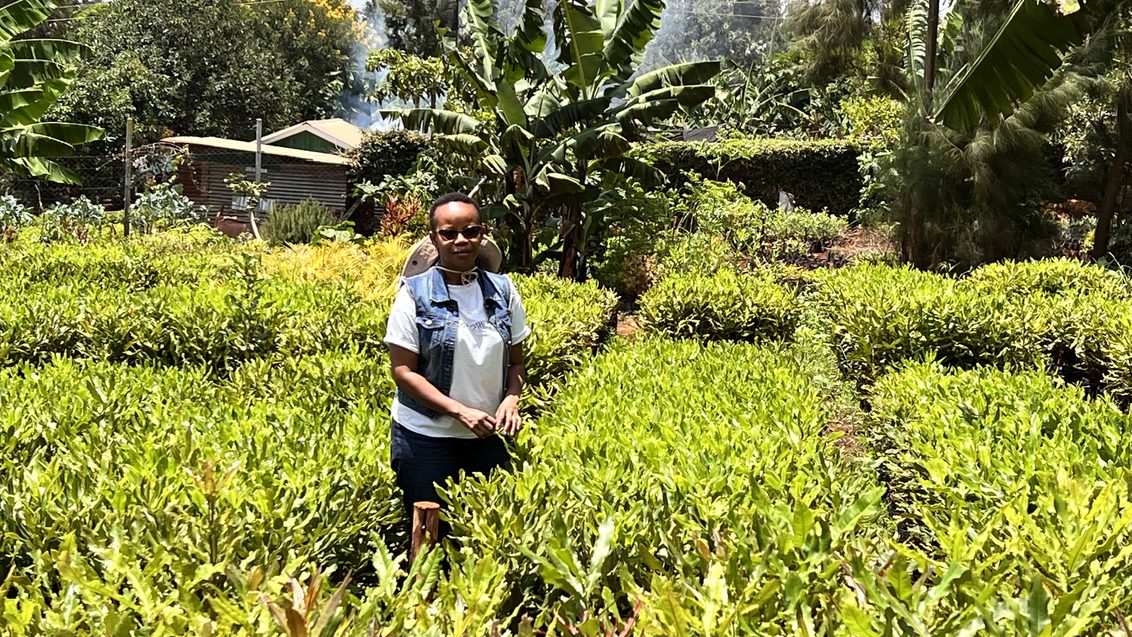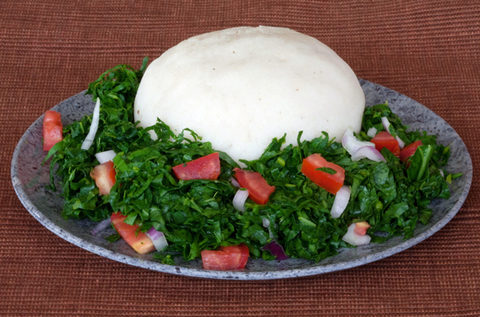“Agriculture is a career of the future”

Lucy Kioko recently became our Regional Director for East Africa. We asked why she joined us, and where she sees her work heading. Lucy also talked about women in agriculture, East African examples to others, and why ugali is hard to beat…
Syngenta Foundation (SFSA): What inspired you to choose agriculture as your subject for study and work?
Lucy Kioko: Agriculture chose me! I originally wanted to be a Quantity Surveyor. My mother worked with Quantity Surveyors, and I thought it sounded good. But things do not always turn out as expected. I have had a fulfilling career in agriculture. And at ag school, I met the most important person in my life: my husband.
Of all the many organizations you could have joined, what encouraged you to come to us?
I was attracted by the culture of achievement and impact. And notably, SFSA has pioneered products that have gone on to become businesses: ACRE Africa in insurance and the sourcing tool Farmforce.
What have been the surprises for you so far?
The main one has been discovering the full extent of the Foundation’s breadth and diversity.
You’re based in Kenya. How would you summarize the current potential and main challenges in the country’s agriculture?
The potential is huge. Some bright sparks are already demonstrating that. Businesses owned or powered by smallholders have put the country on the world commodity map. One example is the Kenya Tea Development Agency. It’s owned by more than 600,000 smallholders and is the world’s largest black tea exporter. Kenya also exports more avocados than any other African country – again thanks to small growers.
That’s the positive side. What about the problems?
Kenyan agriculture faces a myriad of challenges. They include aging farmers, low investment, the impact of climate change and erratic weather, low use of technology, broken market systems, low productivity, and poor return on investment. There are plenty more. But the cliché is true: Every gap or challenge presents an opportunity!
As Regional Director, you’re responsible not just for Kenya, but for our work across East Africa. What will that mean in practical terms over the next couple of years?
First, I need to fully take on and perform my role, to ensure that our current East African programs reach their full potential. Then I’ll explore new possible new ones.
Where do you see Syngenta Foundation East Africa (SFEA) in five years’ time?
We’ll have increased the number of projects and expanded into new countries. Even more, than it is now, SFEA will be a reference point for innovation and sustainable development models in smallholder farming.
Why should potential partners consider working with SFEA?
I think the culture of innovation, sustainability, entrepreneurship, achievement, diversity and inclusion, and impact is an attractive proposition for our partners. In addition, SFEA is willing to share and collaborate to create synergies. That’ll be more and more important as resources become increasingly scarce globally.
You worked most recently in commercial forestry. Where do you see its main links with smallholder agriculture?
Commercial forestry provides several opportunities for smallholders. They can diversify their incomes through the sale of wood and wood products, as well as via carbon credits. Investment in trees also contributes to increasing forest cover. That can provide shade for crops such as coffee. Above all, forest cover helps tackle the effects of climate change, for example by conserving soils and improving soil health. Contrary to popular opinion, however, forestry doesn’t “just happen”. Commercial trees, like any other cultivated crop, need to be grown in the right place, using the right inputs and with end-product markets in mind.
In our Foundation’s 40-year history, you’re the first female Director worldwide. What is your advice to young women contemplating a career related to agriculture?
There are lots of young women in agriculture, but mainly at the grassroots level. We need to move up! I am honored to be the first female Director and hope to do African women proud. Agriculture remains a career of the future, like digital technology and financial services. After all, everybody needs to eat nutritious food. In my experience, ag presents a very dynamic and versatile professional environment. You can be a farmer, engineer, commodity trader, technology developer, researcher, soil scientist, economist, or even a behavioral scientist. You can work in financial services, livestock development, communication, input supply, training and capacity building, systems development, nutrition, processing, logistics… and the list goes on!
If you personally had a million dollars to invest, how would you use them to the greatest advantage of East African smallholders?
My money would be on women farmers, upon whose shoulders smallholder agriculture stands, and the youth who are its future. Additionally, I would continue to lobby the region’s governments. They need to prioritize investment in agriculture and create an enabling environment in which farmers can thrive.
What can the rest of the world best learn from East Africa?
There are lots of things, but I’ll focus here on agriculture. East African farmers are resilient, optimistic, and hardworking. They lead the field in several areas from which other countries can learn, not least across Africa. I’ve already mentioned tea and avocados. Thanks to smallholders, East Africa is also a powerhouse in other produce. On the continent, Kenya’s dairy sector is second only to South Africa’s. Uganda is Africa’s largest exporter of Robusta, which a coffee expert on this website recently predicted has a promising future. Coffee, of course, originated from East Africa. But its native home, Ethiopia, is also famous for tef, increasingly regarded internationally as a gluten-free ‘super food’. East African horticulture is thriving and contributes positively to GDP and smallholder incomes.
Back to your native country: Which Kenyan dish do you most enjoy and why?
I enjoy cooking chapati because my family loves eating them. But for a dish that transports me back to my childhood, it’s got to be ugali with green vegetables cooked with meat in them.
To digest, you like watching documentaries. That sounds like more work after work. What’s the attraction?
Simply put, documentaries are an inexpensive way to learn and travel in my armchair!


